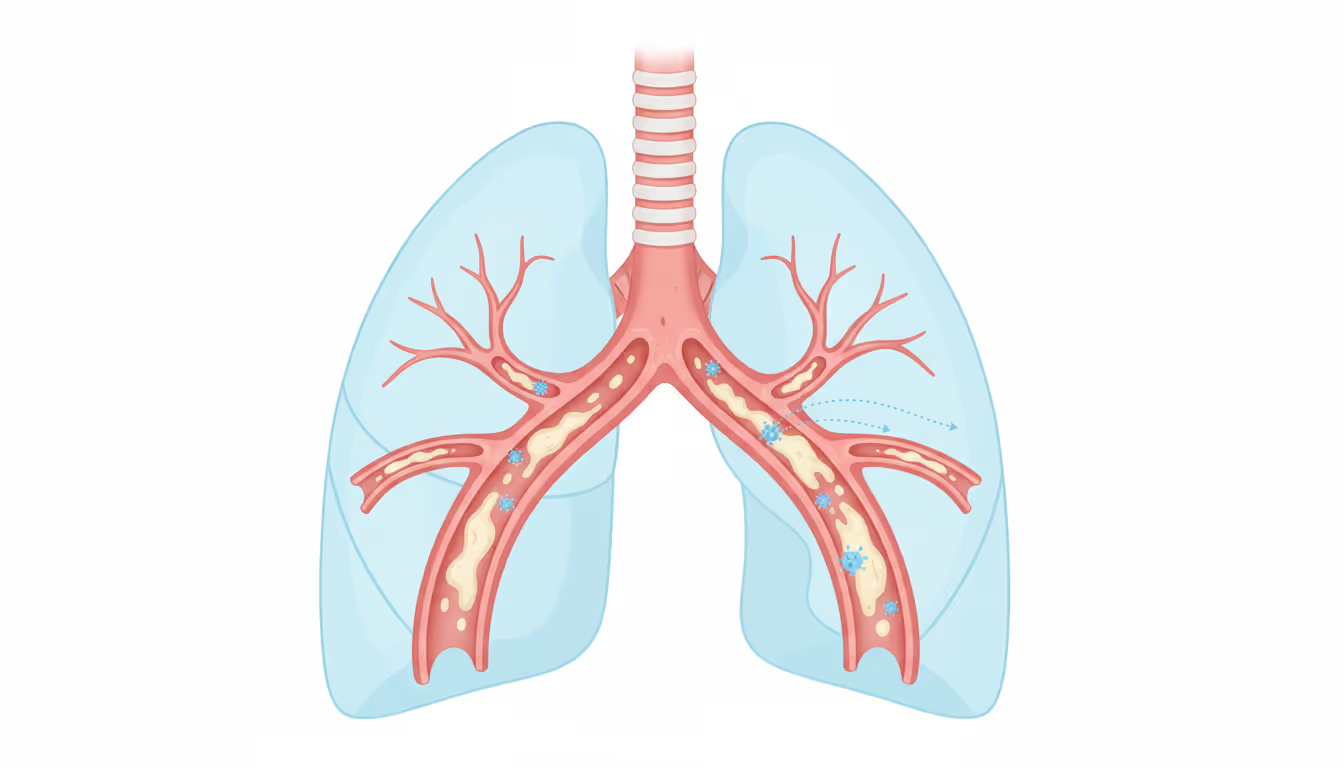
Acute bronchitis refers to the inflammation of the airways, specifically the bronchial tubes or bronchi, caused by either an infection (viral or bacterial) or exposure to chemical irritants like smoke or acid. This inflammation results in the swelling of the tube linings, leading to their constriction and the release of inflammatory fluids. It is most often triggered by a viral infection. Common viruses responsible for this condition include the influenza virus and others. Symptoms typically feature a sudden onset of cough, which may be accompanied by a sore throat, nasal congestion, and general discomfort. Unlike acute bronchitis, chronic bronchitis is a persistent condition characterized by a daily cough with mucus production lasting at least three months over two consecutive years. Smoking is a significant risk factor for the development of both acute and chronic bronchitis. For more information, see chronic bronchitis.




